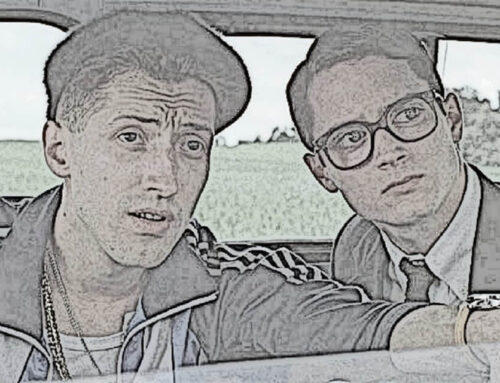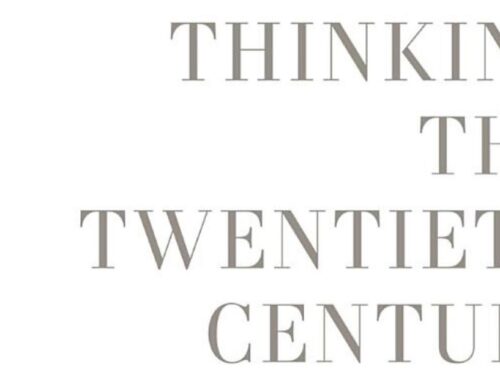The 90th Academy Awards ceremony has just recently come to an end. By now, anyone who has an affinity for movies has probably watched or read about a number of the most celebrated films. This column is not about one of those. It is about the Bosnian and Herzegovinian entry for best foreign language film, which did not make the cut. Nevertheless, I think it is a worthy watch, especially for those of you interested in the politics of what the EU refers to as the “Western Balkans,” since it serves as a giant metaphor for politics in Bosnia and Herzegovina (B&H).
“Men Don’t Cry” is the first feature film by Alen Drljević, a talented B&H filmmaker. It tells the story of a diverse group of Yugoslav Wars veterans of different ethnic groups and religious convictions coming from Bosnia and Herzegovina, Croatia, and Serbia. The key word in the last sentence is “veterans”. The movie unfolds during a post-conflict therapy workshop, aiming to help them with PTSD (posttraumatic stress disorder), at an out-of-season hotel somewhere in the B&H entity of Republika Srpska (which I found earily reminiscent of the infamous “rape hotel” Vilina Vlas).1 The workshop is run by a Slovenian therapist resolved to help the people participating in the workshop. Though many post-conflict workshops tend to attract more open-minded participants, the only way for the Slovenian therapist to get the men to participate in activities is to pay them a sort of salary for the time spent there. The attention to detail given to the workshop in the movie is no surprise as Drljević, a former soldier himself, was inspired to make the movie after taking part in a similar workshop.
I had the opportunity to see this movie during the Tuzla Film Festival and came out of the theater with two takeaways. The first, as I was watching the movie, was the realization of the great way in which Bosnian war movies have managed to adjust and evolve over time. The earliest I can remember, The Perfect Circle (1996) depicted civilian life in besieged Sarajevo. Both the most famous movie, Oscar winner No Man’s Land (2001) and my personal favorite Remake (2003) were set during the war and depicted the fighting. Then movies moved on to address what happens after the war, beginning most notably with Golden Bear winning Grbavica (2007), which was set in the aftermath of the war and dealt with the topic of wartime rape and its aftermath. Snow (2008) was a story about coping with the loss of loved ones and how wartime atrocities affect small communities. Now, Men Don’t Cry provides a brilliant way to address the theme of war, but in a very relevant way for the present time. People in Bosnia and Herzegovina often say: “Enough of the war movies, make a movie about something else”. However, Bosnian and Herzegovinian cinema has a proven track record of approaching the theme of the war in ways that resonate with the viewers at that particular time. Indeed, post-conflict reconciliation workshops are still very much present and I am personally quite happy that someone decided to depict one in the form of a well-made movie.
The second way in which the movie left an impression on me was through its symbolism. In a brilliant way, the therapy workshop serves as a metaphor and microcosm of Bosnian and Herzegovinian politics, both internal and external. Think about it. The workshop paints a picture of Bosnian and Herzegovinian society by including all three constituent peoples of Bosnia and Herzegovina (Bosniaks, Croats, Serbs) of varying religious affiliations (Muslim, Catholics, Christians) and differing levels of religiosity (from devout believers to atheists). They key for me, in all of this, is the fact that the role of the therapist and mediator is played by a Slovenian. If the participants in the workshop represent the constituent peoples of Bosnia and Herzegovina, then the Slovenian mediator embodies the EU. Thus, the entire therapy process embodies the continuous efforts that the EU has made in order to mediate the situation in B&H and help its reconciliation and post-war reconstruction efforts, symbolizing B&H’s external relations with the EU.
On the other hand, the difficulties the participants face during therapy are indicative of the stagnant politics, stymied by lack of trust among the ethno-national groups. In order not to spoil the movie, I will not comment on the ending, though I personally interpreted it as indicative of the “solution” for the internal political situation in Bosnia.
Unfortunately, the movie is still showing at festivals across Europe and cannot be viewed in any other way. However, I fully expect it to have a DVD release soon. If I managed to spark your interest, here is a trailer and the movie’s IMDB page.
Source:
- https://www.theguardian.com/world/2018/jan/28/bosnia-hotel-rape-murder-war-crimes




Leave A Comment